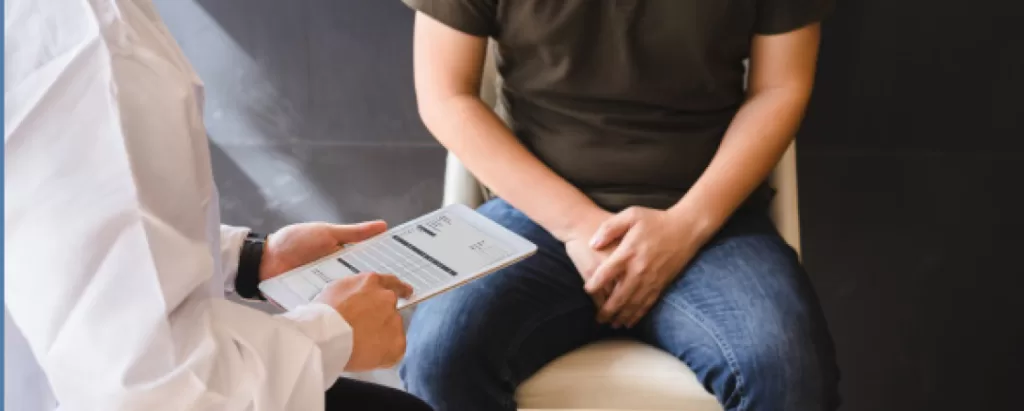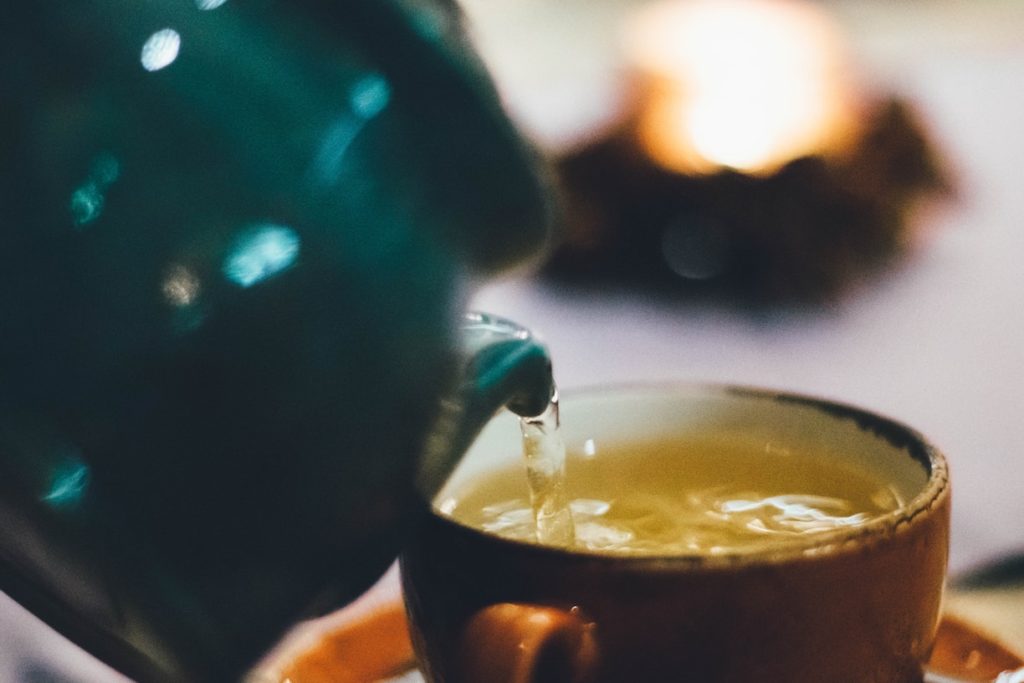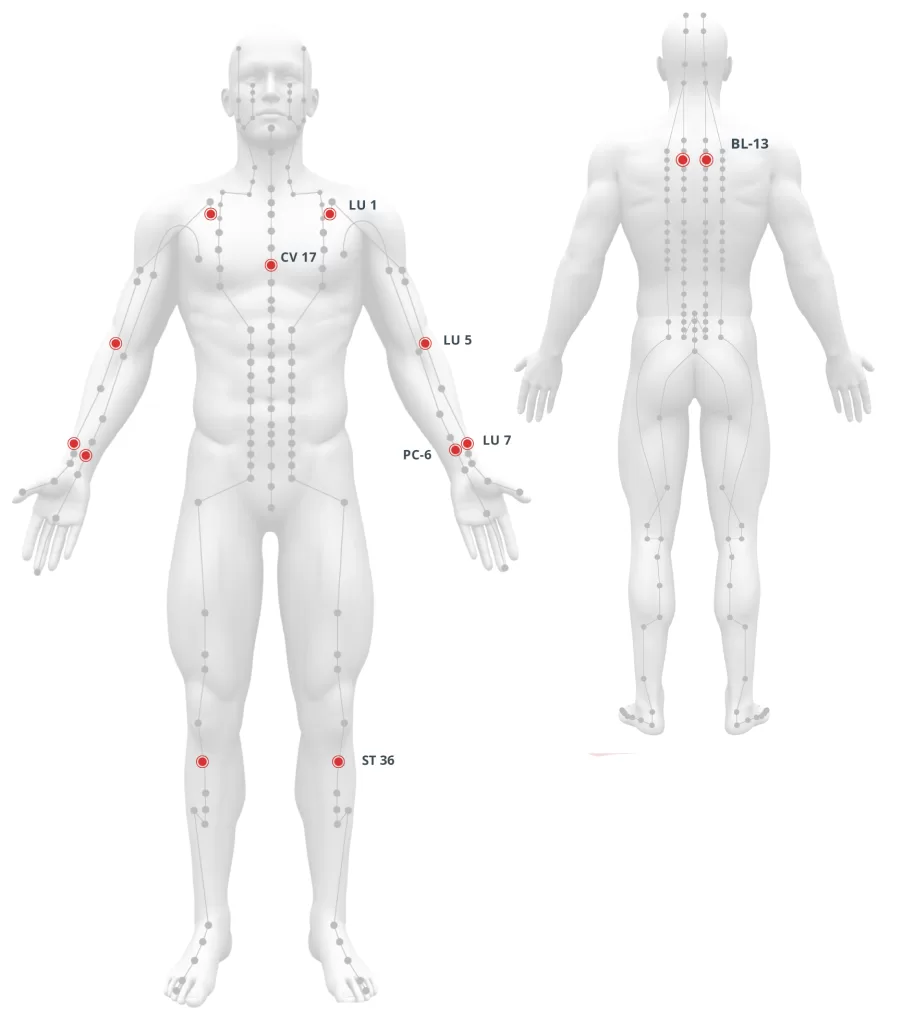- WE MOVED !!!
-
 Professional Acupuncture & Physical Therapy1118 East Superior Street
Professional Acupuncture & Physical Therapy1118 East Superior Street
Duluth, MN 55802(218) 724-3400 Clinic Hours
Mon8:00 am - 4:30 pmTue1:45 pm - 4:30 pmWed8:00 am - 4:30 pmThu8:00 am - 4:30 pmFriCLOSED

- Long Covid Booklet
Acupuncture
Acupuncture and Prostate Health
 Whether you are looking to reduce your risk of prostate disease or treat an existing condition, acupuncture may be able to help! Because of its holistic approach, acupuncture can help relieve symptoms associated with prostate problems like frequent and painful urination.
Whether you are looking to reduce your risk of prostate disease or treat an existing condition, acupuncture may be able to help! Because of its holistic approach, acupuncture can help relieve symptoms associated with prostate problems like frequent and painful urination.
A report titled Traditional Chinese Medicine (TCM) and Prostate Health published by Pacific College found TCM to be effective in the treatment of prostatitis, urinary tract infections, and symptoms associated with prostate cancer supportive care.
There have been multiple studies that have proven acupuncture helpful including a Chinese study that found electroacupuncture (a subform of acupuncture) had a 96.4 percent rate of effectiveness for treatment. Additionally, a study titled Acupuncture for pain caused by prostate cancer which speaks to the pain levels associated with Prostate Cancer and how acupuncture can reduce those levels.
In modern practice of acupuncture, each patient is assessed and given a treatment plan to reduce their symptoms. Acupuncture accomplishes this by addressing the body as a whole and using acupuncture points to stimulate meridians that then return the body to balance and its natural flow.
The principle behind Acupuncture as a practice is that our bodies have a natural energy flowing through them at all times. When our body’s energies become stuck or stagnant, we are susceptible to disease and illness, including prostate cancer and prostatitis.
Prostate cancer is one of the most common forms of cancer among men in the United States with around 290,000 new cases diagnosed each year, according to the Centers for Disease Control and Prevention. If you are at risk or currently dealing with prostate cancer or prostatitis, you are not alone.
Consider acupuncture as an alternative, safe treatment to reduce symptoms associated with prostate problems and restore your body to better health.
Prostate cancer is considered the most common form of cancer in U.S. men. It is important to know if prostate cancer runs in your family and if you are at risk, especially if you are a man over 40.
Below are three tips for a healthy prostate and for better health.
1. DIET AND EXERCISE
Certain foods are known to help prostate health and prevent cancer. These include nuts, seeds, pumpkin, mushrooms, and berries. Foods that contain a powerful antioxidant called lycopene can be very effective. Some foods high in lycopene include: watermelon, pink grapefruit, guava, papaya, apricot, and tomatoes.
Focusing on a diet rich in fruits and vegetables and avoiding processed foods and meat high in fat is a part of a healthy diet for maintenance and preventive care. Reducing stress and regular exercise can also decrease your risk of cancer.
2. TRADITIONAL CHINESE MEDICINE
Prostate cancer and decreased prostate health are associated with a heat and kidney deficiency in TCM. Acupuncture has been used for centuries to treat and improve prostate function as well
as energy flows in this area and throughout the body. As you get older, the kidney function starts to decrease, which can lead to other issues including decreased prostate health. Acupuncture focuses on the kidney meridian to help improve the body’s circulation.
3. STOP SMOKING
According to the American Cancer Society, smokers are more likely to have a more severe form of prostate cancer. A patient who smokes also has a higher rate of recurrence. Consider quitting smoking to better your overall health and reduce your risk of prostate cancer. Patients who quit smoking for over 10 years reduced their mortality risk by an amount comparable to those who had never smoked.
Contact me if you think you are at risk or are currently managing prostate cancer and are looking for an alternative, safe treatment option! We will create an individualized plan just for you.
Acupuncture to Quit Smoking
Acupuncture has been used to treat addiction for many years. Curbing addiction, specifically when it comes to smoking, is not something that can be done overnight (often referred to as “quitting cold turkey”).
During the journey of quitting, there will be times when you think you won’t be able to stay smoke-free and want to give up. Considering acupuncture treatment when you are trying to quit can have great effects on helping you back on the road to better health.
Contact us at Professional Acupuncture & Physical Therapy in Duluth Minnesota and learn how acupuncture can help you stay smoke-free for a healthier body, mind, and spirit.
Alternative treatments to Quit Smoking
Cayenne Pepper
Cayenne pepper can lower cravings for cigarettes by lowering the respiratory response to tobacco and other chemicals found in cigarettes. Adding the pepper to a glass of water every day can help decrease your desire for a smoke.
Lime
Lime has been known to be a natural alternative to nicotine gum for quitting smoking. Squeeze lime into water throughout the day to help lower cravings. Lime also has an anti-infective agent to help the body’s immune defense.
Fava beans
Because fava beans contain L-dopa, which your body converts dopamine, these beans have been known to reduce nicotine cravings. Nicotine has addictive properties because it also releases dopamine in the brain, by finding alternatives that have the same effects, your nicotine cravings will be reduced. There are many recipes that can be made with fava beans and are easily available at the grocery store.
Massage
Many people who are trying to quit smoking experience anxiety. For smokers who have smoked regularly for years, massage may be an effective option in reducing anxiety associating with quitting.
Acupuncture
Research has shown that acupuncture not only reduces cravings but can also reduce symptoms of withdrawal such as irritability and jitters. Acupuncture works by targeting specific acupuncture points on the body that help return the body back to its natural energy flow, resulting in better overall health. An acupuncture point specifically used to help the incessant urge to smoke is called “Tim Mee” and is located on the inside of the arm. This point helps change thev body’s perception of nicotine. This point combined with others can help reduce cravings. Another Acupressure point is Conception Vessel 17 (CV 17). This point can be found in the center of the sternum and is used to reduce stress and anxiety, as well as strengthen the lungs. There are also simple acupressure techniques to cope with cravings such as ear massages which is one way you can cope with cravings at home. Doing this releases endorphins (which are natural painkillers).
If you have tried many of the above methods to try and quit smoking, reach out to us at (218) 724-3400 and schedule an appointment! We can create an individualized treatment plan to get you on the right track to being smoke-free.
Immune-Boosting Tea Recipe

Ingredients
- 1 teaspoon echinacea root
- 1 teaspoon dried astragalus root
- 1 teaspoon dried elderberries
- 1 inch fresh ginger root, sliced
- 1 cinnamon stick
- 2 cups water
- Honey (optional for sweetness)
Instructions:
- In a small saucepan, add water and bring it to a boil.
- Once the water reaches a rolling boil, reduce the heat to low.
- Add echinacea root, astragalus root, elderberries, ginger root slices, and cinnamon stick to the saucepan.
- Allow the ingredients to simmer on low heat for about 10-15 minutes, allowing the flavors and beneficial properties to infuse into the water.
- After simmering, remove the saucepan from heat and let it cool for a few minutes.
- Strain the tea into a cup or teapot, discarding the herbs and spices.
- If desired, add honey for a touch of sweetness and stir well.
- Enjoy the immune-boosting tea while it’s warm and soothing.
Note: Feel free to adjust the quantities of ingredients according to your taste preferences. You can also experiment with adding other immune-boosting herbs like rosehips, lemon balm, or thyme to customize the tea blend to your liking.
Enjoy sipping on this nourishing tea as part of a balanced and healthy lifestyle to support your immune system. Stay well!
Immune-Boosting Congee Recipe
 Congee, a type of rice porridge, is a nourishing and easily digestible dish that can be beneficial for supporting the immune system. Here is a simple congee recipe with immune-boosting ingredients:
Congee, a type of rice porridge, is a nourishing and easily digestible dish that can be beneficial for supporting the immune system. Here is a simple congee recipe with immune-boosting ingredients:
Ingredients
- 1 cup white rice (jasmine or long-grain)
- 6 cups water or vegetable broth
- 1 small chicken breast – or 1 cup diced mushrooms (vegetarian option)
- 1 inch fresh ginger, grated
- 2 cloves garlic, minced
- 1 tablespoon tamari or soy sauce
- 1 teaspoon sesame oil
- 1 cup mixed vegetables (such as carrots, peas and spinach)
- Optional toppings: chopped green onions, cilantro, sliced mushrooms, and a drizzle of chili oil
Instructions:
- Rinse the rice under cold water until the water runs clear. Drain and set aside
- In a large pot, bring the water or vegetable broth to a boil.
- Add the rinsed rice, chicken breast or diced mushrooms, grated ginger, and minced garlic to the pot.
- Reduce the heat to low, cover the pot with a lid, and let simmer for about 1 to 1.5 hours. Stir occasionally to prevent sticking – if using chicken breast, remove it from the pot after cooling, shred it with a fork and return it to the congee – if using mushrooms, let them cook throughout the simmering process.
- As the congee thickens, add tamari or soy sauce and sesame oil. Stir well to incorporate flavors.
- Add the mixed vegetables to the pot and continue cooking for an additional 10-15 minutes, or until the vegetables are tender.
- Remove from heart and let the congee cool slightly.
- Serve the immune-boosting congee hot and garnish with your choice of toppings.
Enjoy this comforting and immune-supporting congee as a nourishing meal. Feel free to customize the recipe by adding herbs or spices like turmeric, black pepper, or garlic powder for additional flavor and immune-boosting benefits.
Remember to adapt the recipe to your dietary preferences and consult with Heidi and her team for personal advice, especially if you have health conditions.
Acupressure Points for Pneumonia & Common Cold
Acupressure, a traditional Chinese medicine practice, involves applying pressure to specific points on the body to promote healing and relieve symptoms. While it’s not a substitute for medical treatment, especially for serious conditions like pneumonia, acupressure may be used as a complementary therapy to help manage symptoms.
Here are some acupressure points that are commonly recommended for respiratory issues, which may be relevant to both viral and bacterial pneumonia:

1. LU-1 (ZHONGFU)
Located on the chest, just below the clavicle. This point is believed to help with breathing difficulties and lung health.
2. LU-5 (CHIZE)
Found on the elbow crease, on the thumb side. It’s said to be effective in clearing phlegm and easing cough.
3. LU-7 (LIEQUE)
Located above the wrist on the inner arm. It’s often used for relieving symptoms like cough,
headache, and sore throat.
4. ST-36 (ZUSANLI)
Located below the knee. This point is thought to strengthen overall energy and immunity, which can be beneficial in recovery.
5. CV-17 (DANZHONG)
Situated in the center of the chest. This point is commonly used for respiratory health, including easing breathing difficulties and cough.
6. BL-13 (FEISHU)
Located near the spine, directly opposite LU1. This point is specifically associated with lung health and may help ease breathing.
7. PC-6 (NEIGUAN)
Found on the inner arm, a few inches above the wrist. It’s known for its effectiveness in relieving nausea and improving chest discomfort.
Acupressure can be a supportive tool for overall wellness and symptom management, but it’s essential to prioritize and follow medical advice for serious health conditions.
Important Considerations:
Consult a Professional: It’s advisable to consult with a healthcare provider or a certified acupressure practitioner, especially when dealing with serious health conditions like pneumonia.
Gentle Approach: Apply pressure gently, especially on sensitive areas or if you’re new to acupressure.
Avoid Overexertion: If any point feels too painful, reduce pressure or stop.
Not a Substitute for Medical Treatment: Acupressure should not replace conventional medical treatment, especially for conditions like pneumonia which can be life-threatening if not properly treated.
